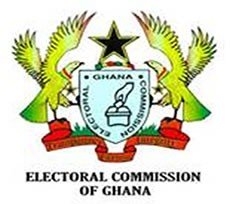The announcement of a staff level agreement on an IMF deal for Ghana should ease short-term government and external financing pressures, but sticking to the programme, which includes ambitious fiscal consolidation targets, will be challenging ahead of elections in 2016, Fitch Ratings says.
The three-year programme is expected to be worth USD940m. It will provide an impetus for donors to re-engage with Ghana, providing much needed foreign currency. The programme will focus on three areas: “restraining and prioritising public expenditure, increasing tax collection and strengthening the effectiveness of the central bank’s monetary policy”.
This policy agenda identifies Ghana’s key sovereign credit weaknesses; successful implementation would improve fiscal discipline, help to restore macroeconomic stability and support the currency. Demonstrable commitment to implementing the programme over its life could therefore be positive for Ghana’s sovereign rating.
However, the programme contains ambitious targets, in particular for fiscal consolidation. The IMF envisages the budget deficit narrowing to 7.5% of GDP in 2015 from 9.5% in 2014. This is higher than the deficit target of 6.5% announced in the 2015 budget in December and reflects the impact of lower oil prices and weaker growth. The government has agreed to cut expenditure in response to lower oil prices, as part of its deal with the IMF. Fitch forecasts a deficit of 8% of GDP in 2015.
The Fund then projects that the deficit will narrow to 3.5% of GDP by 2017. We think this is too optimistic given the deepening electricity crisis, which could drag growth lower, and the likely pressure that the upcoming elections will exert on spending.
The announcement follows renewed pressure on the Ghanaian cedi, with the currency falling by 8% since the beginning of January partly reflecting seasonal pressures, and reserves falling by USD600m to USD4.9bn over the same period. Treasury bill yields have remained above 26%, meaning that Ghana faces the highest funding cost among Fitch-rated sovereigns in Sub-Saharan Africa.
An IMF programme should reduce external vulnerability and support reserve accumulation, helped by a narrowing of the current account deficit due to import compression. Donors who withheld around USD200m in grants in 2014 will likely re-engage and the presence of the IMF will unlock access to cheaper concessional financing. This should reduce finance costs and bring in dollars.
A recent three-year bond auction saw 70% foreign participation and may herald renewed foreign interest in Ghanaian debt. The Negative Outlook on Ghana’s ‘B’ sovereign rating reflects the risks to external financing capacity and the challenge and cost of financing the deficit. Easing pressure on external finances and reserves following the IMF announcement would contain near-term downward pressure on the rating.
However, signs of fiscal slippage ahead of the election or increased external financing pressures would put further downward pressure on the rating.
(The above statement was released by the rating agency) LONDON, February 27 (Fitch)



